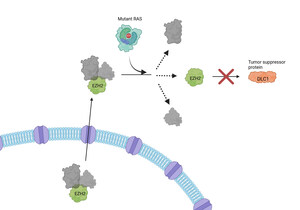BETHESDA, Md., Aug. 7, 2014 /PRNewswire-USNewswire/ -- In the African-American community, the vast network of Historically Black Colleges and Universities (HBCUs) located around the country are treasured institutions. They are time-honored pathways to education for many African American high school graduates and even today continue to serve as beacons of higher education hope for many young African Americans.
Although these institutions have often struggled with resources, they have managed to play a vital role in health research. In fact, some HBCU institutions are working alongside the National Cancer Institute (NCI) in researching cancer health disparities. For example, African Americans continue to suffer the greatest burden for most common types of cancer, including lung cancer and prostate cancer.
One of the ways the NCI works with HBCU institutions is through its Partnerships to Advance Cancer Health Equity (PACHE) program, a grant initiative run by NCI's Center to Reduce Cancer Health Disparities. The PACHE initiatives are joint partnerships between schools serving underrepresented populations and NCI-designated cancer centers, and they are designed to build cancer research and training capacity. Through PACHE, NCI also creates stable, long-term relationships between cancer centers that are located in many of the communities where racial and ethnic cancer disparities exist and educational institutions that serve underrepresented populations in these communities. Additionally, PACHE is focused on improving research effectiveness and promoting best practices in cancer disparities research.
PACHE helps bring trusted educational institutions in the African American community into the broader cancer disparities research fold. It also helps to create a pipeline for young scientists who are members of underrepresented groups to enter the cancer research field.
For members of the African American community, knowing that HBCUs are involved in cancer research benefitting African Americans is critical to building community trust with cancer researchers who are investigating racial and ethnic disparities.
HBCUs participating in the PACHE program are involved in several interesting collaborations:
- Researchers at North Carolina Central University (NCCU) in Durham are working jointly with the neighboring University of North Carolina-Chapel Hill (UNC-CH) Lineberger Comprehensive Cancer Center on developing a cancer health disparities research and training program at the NCCU campus. The program aims to create a minority institution-based research program and improve training opportunities for undergraduate students from underrepresented groups who are interested in careers as cancer disparities researchers.
- Morehouse School of Medicine (MSM), a renowned African American medical training institution, is in a partnership that includes MSM, Tuskegee University, and the University of Alabama-Birmingham Comprehensive Cancer Center (UABCCC). This partnership is working to increase the pool of minority cancer researchers from Tuskegee and Morehouse by identifying talented students and faculty from those two schools. The project then formally connects them with the research community at the research-intensive UABCCC in the fashion of a mentoring relationship. The partnership also allows UABCCC to gain credibility among the underserved communities in its catchment area.
- Meharry Medical College is collaborating with fellow Nashville, TN, institution Vanderbilt University in a partnership to fight cancer disparities through combining population research, basic research, and clinical research efforts. The two institutions have also brought another nearby HBCU, Tennessee State University, into the partnership. Key goals of this research collaboration are attracting more students to enter careers in cancer research, encouraging healthy lifestyles in the community, and educating more African Americans about clinical trials participation.
African Americans face monumental challenges in many areas—one of which is cancer, given that the African Americans have higher rates of cancer deaths and shorter cancer survival times than any other racial/ethnic group in the U.S. Finding answers to why African Americans experience a greater cancer burden than other groups in the U.S. will require input from the best and brightest minds in the research field, and that includes the top minds working at our Historically Black Colleges and Universities. These researchers have special insight and knowledge that is critical to resolving some of the mysteries of this disease and how it affects African Americans.
To learn more about PACHE, see the full listing of PACHE institutions at: http://crchd.cancer.gov/research/pache/pache-current-partnerships.html
NCI leads the National Cancer Program and the NIH effort to dramatically reduce the burden of cancer and improve the lives of cancer patients and their families, through research into prevention and cancer biology, the development of new interventions, and the training and mentoring of new researchers. For more information about cancer, please visit the NCI web site at www.cancer.gov (or m.cancer.gov from your mobile device) or call NCI's Cancer Information Service at 1-800-4-CANCER (1-800-422-6237). More articles and videos in the culturally relevant Lifelines series are available at www.cancer.gov/lifelines, including a video about skin cancer for people with darker skin.
Logo - http://photos.prnewswire.com/prnh/20111018/DC89117LOGO
SOURCE National Cancer Institute
WANT YOUR COMPANY'S NEWS FEATURED ON PRNEWSWIRE.COM?
Newsrooms &
Influencers
Digital Media
Outlets
Journalists
Opted In





Share this article